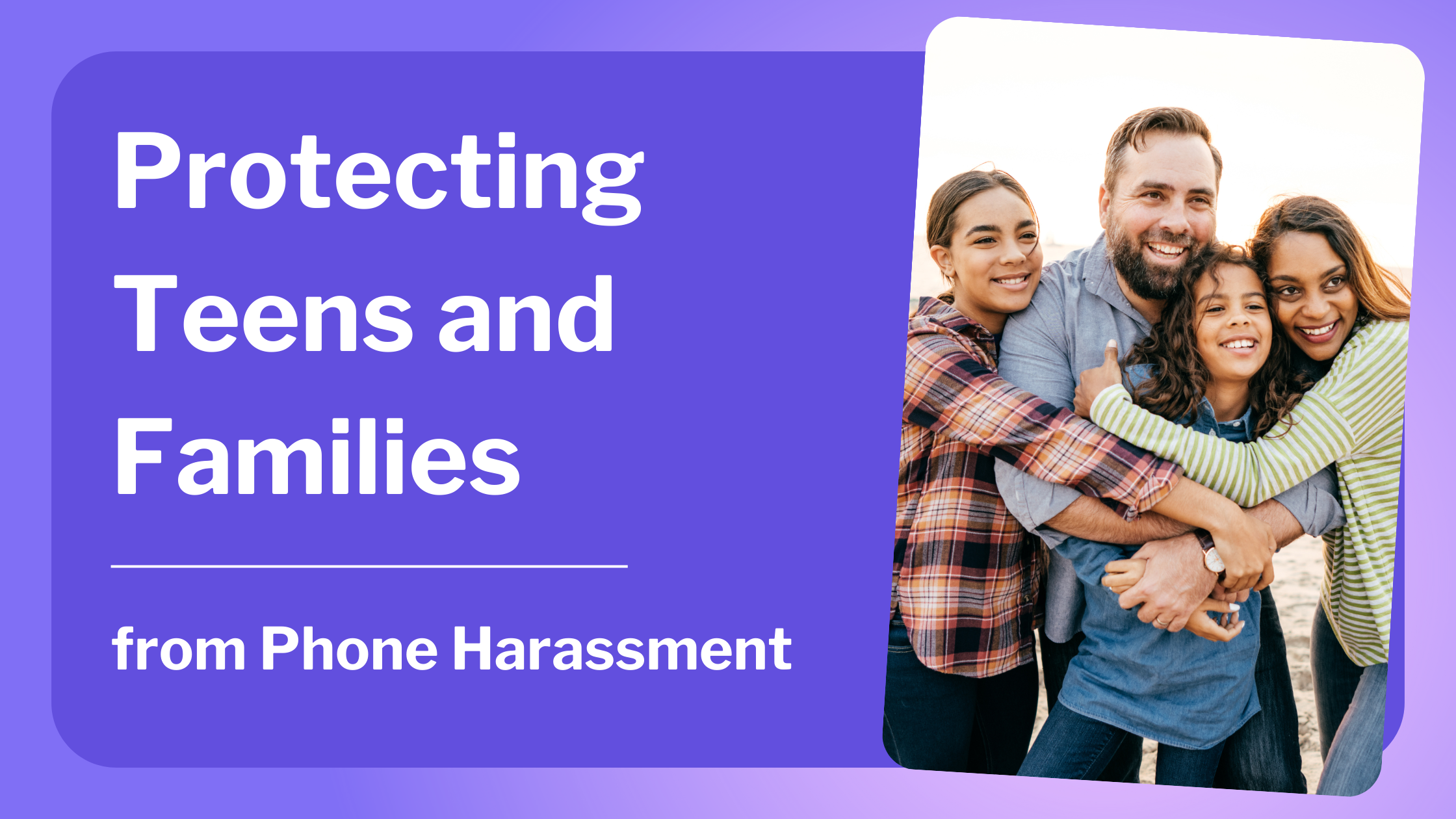
Published 09/18/25
Harassment Isn’t Just an Adult Problem
When we think of phone harassment, we often picture robocalls or scammers targeting adults. But harassment doesn’t stop there. Teens and families are increasingly affected—whether it’s bullying texts, repeat calls from blocked numbers, or strangers hiding behind “No Caller ID.”
As phones become essential at younger ages, protecting your family’s phone safety matters more than ever. Here’s how to keep your household safe, informed, and confident.
Why Teens Are Especially Vulnerable
Less experience spotting scams: Teens may trust calls that seem urgent or familiar.
Peer-related harassment: Harassing calls from classmates or acquaintances can be just as damaging as stranger calls.
Higher emotional impact: Even a few unwanted calls can cause anxiety, embarrassment, or fear.
 Family reminder: Teaching teens about boundaries is as important as giving them the phone itself.
Family reminder: Teaching teens about boundaries is as important as giving them the phone itself.
Step 1: Teach “Don’t Pick Up” for Unknown Numbers
Curiosity makes teens more likely to answer hidden or unfamiliar calls. But that’s exactly what harassers count on.
 Family habit: Encourage your kids to let unknown numbers go to voicemail. Use iCaughtYou to unmask callers so you can decide together whether to respond.
Family habit: Encourage your kids to let unknown numbers go to voicemail. Use iCaughtYou to unmask callers so you can decide together whether to respond.
Step 2: Blacklist Harassment Quickly
If a teen receives repeat calls from peers or strangers, simply blocking isn’t enough—especially if numbers keep changing.
 Family habit: Add offenders to an iCaughtYou blacklist to permanently stop their access, even from private numbers.
Family habit: Add offenders to an iCaughtYou blacklist to permanently stop their access, even from private numbers.
Step 3: Record for Evidence
Bullying and harassment often escalate. Having proof helps if you need to involve schools, carriers, or even law enforcement.
 Family habit: Use iCaughtYou to record and recall calls, so teens aren’t left second-guessing what was said—and you have documentation to back them up.
Family habit: Use iCaughtYou to record and recall calls, so teens aren’t left second-guessing what was said—and you have documentation to back them up.
Step 4: Create Family Phone Boundaries
Phones don’t need to be on 24/7. Boundaries around time and access help reduce exposure to harassment.
 Family habit:
Family habit:
Set Do Not Disturb hours at night.
Limit who can contact your teen’s number during certain times.
Review recent calls together to spot any patterns.
Step 5: Talk About Emotional Impact
Phone harassment isn’t just technical—it’s emotional. Teens may feel embarrassed, anxious, or hesitant to talk about it.
 Family habit: Keep the conversation open. Let your teen know harassment isn’t their fault, and they’re not alone in handling it.
Family habit: Keep the conversation open. Let your teen know harassment isn’t their fault, and they’re not alone in handling it.
Why iCaughtYou Protects Families Better
Harassment thrives in the dark—behind blocked numbers, repeat calls, and hidden IDs. iCaughtYou shines light on all of it, giving families:
Clarity with caller unmasking
Control with permanent blacklisting
Confidence with secure recording and recall
It’s not just about stopping calls—it’s about giving your family peace of mind.
Bottom Line: Family Phones Deserve Family Protection
Harassment doesn’t belong in your teen’s life—or yours. With clear habits, open conversations, and tools like iCaughtYou, you can create a family phone environment that’s safe, supportive, and confident.
Protect Your Family’s Phone Space
Stop harassment before it reaches your loved ones. Keep your family safe with iCaughtYou
Keep your family safe with iCaughtYou
Further Reading
Phone Harassment Recovery: From Anxiety to Confidence – iCaughtYou Blog
Stop Bullying: Tips for Parents – StopBullying.gov